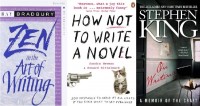
3 Great and Inspiring Books About Writing
culturedvultures.com – Tuesday April 23, 2019

How is your writing going at the moment? I’ll be honest and say that mine personally could have been better this last month or so. I started the year strongly and have reached a bit of a dip. The thing that always helps me to get out of a slump is to get inspired by someone else, be it asking a friend who is busy with their words if I can read for them, or reading a book about writing by someone who seriously knows what they are talking about. Here are three great books on the subject, all of which have helped me when I’ve been feeling a bit down in the writing dumps. They’re the ones I always go back to time and again, whenever I need that jolt.
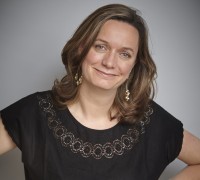
Best-selling author Harriet Evans reveals her technique for penning hit novels
womanandhome.com – Thursday April 11, 2019

We ask Harriet Evans about her journey to becoming a best-selling author, find out why she proudly displays Golden Girls DVDs, and reveal tantalising details about her latest book...
Harriet Evans is no newbie to the world of writing. In fact, she’s written a whopping 12 books over the course of her career.
Writing it seems is in her blood. Her father was formally an editor at Hodder, the publishing house behind some of the most successful and prolific writers, such as Jodie Picoult and John Grisham.
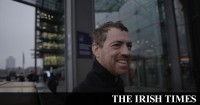
Writing a first novel is like wandering out into an unclear, inhospitable landscape
irishtimes.com – Monday April 8, 2019

In September 2008, I left my job as a structural engineer to return to university to study fine art. I had also begun creative writing classes at the Irish Writers Centre under the Texan novelist, Greg Baxter, a then unpublished author and a complete unknown to me.
His classes consisted of reading and discussing the work of great writers. We’d submit writing and a week later we’d receive our text back, decimated with strikethroughs, edits, suggestions; and at the end of each exercise there was always a substantial note of criticism and encouragement. I ended up doing three 10-week classes in short form fiction and nonfiction. It exposed me to writers I’d not heard of before. My reading up till then consisted of some classics and whatever had been given good reviews in the broadsheets. I don’t remember Greg giving much by way of general advice throughout this time, other than that he insisted whatever we submitted was in no way to be planned out or plotted ahead. The openended-ness at the heart of this request at first sat uneasily with me. My habits of thought up till then had been, naturally enough, predominantly deductive.
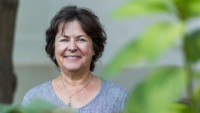
Turning Pages: The joys of writers' retreats
smh.com.au – Friday April 5, 2019

I've always been a bit sceptical about writers' retreats. They sound so self-indulgent. All that food and wine and yoga and wellbeing in gorgeous surroundings. Aren't you supposed to just get on with it, in your garret or at the kitchen table, surrounded by people? It was good enough for Jane Austen, why isn't it good enough for you?
Yet these retreats are flourishing, and they seem to get more and more lavish and luxurious. Perhaps the first haven for Australian writers was Eleanor Dark's house, Varuna, in the Blue Mountains, and it's still going strong. You can win a residency or pay for your stay, and you can either work away quietly or get feedback from editors and publishers through the various mentoring programs on offer.
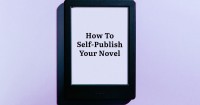
How to self-publish your novel
theverge.com – Monday April 1, 2019

Until recently, if you were a writer who had a novel or other work, there was essentially a single path to follow: you tried to find an agent who liked your writing, and who would be able to sell it to a publisher. The process could take months or years — assuming you were able to get on that merry-go-round at all.
David Gaughran, author of Let’s Get Digital and other books about self-publishing, tried that route when he wrote his first novel about 11 years ago. It was an exasperating experience.
“I spent about 18 months querying every agent that I could find in the English-language world and didn’t really get anywhere,” Gaughran says. He was frustrated enough that he thought about giving up. “But then I started looking at self-publishing.”
Since then, self-publishing has become far more than a last-ditch alternative to traditional publishing — it’s a choice that many authors are making from the starting line. But while it’s not all that hard to put out an ebook these days, finding an audience takes a lot more than simply uploading your manuscript and clicking publish: it means going through the entire publishing process on your own, from editing to artwork to marketing, putting your book’s success entirely in your own hands.

Pen Names: Don’t worry, you can deposit the check
By G. Miki Hayden
Instructor at Writer's Digest University online and private writing coach
firstwriter.com – Monday April 1, 2019

One of the topics I see some jawboning about is whether and why to use/not use a pen name (aka a nom de plume). Since the topic seems to fascinate, and many folks before they’ve even written the book seek out a name to write it under, I thought the subject was worth some air time.
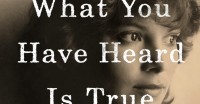
How to Write Poetry About Conflict
theatlantic.com – Monday March 25, 2019

The poet Carolyn Forché has devoted much of her career to writing what she calls the poetry of witness. She coined the term in her introduction to Against Forgetting, a 1993 anthology in which she collected works by 145 “poets who endured conditions of historical and social extremity during the twentieth century.” Forché herself had not endured such conditions, but she had seen them. From 1978 to 1980, she traveled repeatedly to El Salvador, where she bore witness to the violent repression of Salvadoran citizens by that country’s military dictatorship.

The agent, her authors and the legal battles worthy of a bestseller
smh.com.au – Friday March 22, 2019

Selwa Anthony is ensconced on an avocado-green leather sofa, a chihuahua reclining on either side of her. The leading literary agent is small but commanding, a diminutive grande dame with sharp brown eyes and long purple fingernails. As always, she is carefully coiffured and glamorously dressed, as if her next appointment were a cocktail party. But Anthony's mood on this warm afternoon is more defiant than festive. "Everything I've done in my life has been boots and all," she says.
Literary agents are behind-the-scenes people. Their job is to foster writers' careers and secure them good publishing deals: they rarely make news in their own right. Yet Anthony has had a central role in not one but two headline-grabbing court cases in the past year. First, she was in the thick of a battle over the estate of her friend Colleen McCullough, best-known as the author of the blockbuster outback saga The Thorn Birds. Then came the showdown with her former star client, bestselling mystery-romance writer Kate Morton. Anthony, who initiated the legal action against Morton, ended up feeling that her own professional reputation was on trial. In the witness box, she was grilled for hours. "It was terrible, terrible, terrible," she says, as sunlight streams into her harbourside Sydney apartment.

All write now: writing is a numbers game
montclairlocal.news – Sunday March 17, 2019

I woke up this morning to a rejection email in my inbox. It was for a short, lyrical essay I had written and submitted nearly a year ago. A piece I was quite fond of. A piece I was hopeful would actually find a home. The rejection hurt more than usual, as my piece apparently went through several rounds of consideration and came close to being chosen for publication. SO! CLOSE! ::shakes fists at sky::
Still, after the briefest of mourning periods, I opened up the spreadsheet in which I tracked my numbers of pitches and submissions, moved this particular publication to the “rejected by” column, and considered where I might send my piece next. And that was that. Onward!

Writing the novel you want to see in the world
irishtimes.com – Saturday March 2, 2019

In 2014 Lisa Coen and I put out our first book under the Tramp Press banner. We were young. I was bullish, irritated by the over-productive, under-resourced, gate-keeping male-centric world of publishing we’d experienced as office juniors or unpaid interns.
We wondered: what if we could secure funding from the Arts Council to help us start out on our own, publishing just a few titles a year, focusing on nothing but their extraordinary quality?
Get the free newsletter | Submit a news item or article | Get Writers' News for your website





